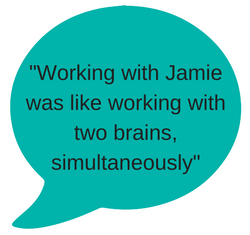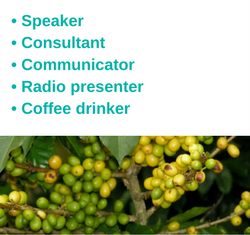Goodbye Paxo; hello Evan: a new era began this month for television’s Newsnight as Evan Davis, formerly of radio’s Today and The Bottom Line programmes and TV’s Dragon’s Den, took the reins as the show’s lead presenter after Jeremy Paxman’s long tenure ended.
Inevitably, many are making comparisons between Davis’ and Paxman’s style of interviewing. Where Paxman grilled, roasted, and toasted his guests, Davis teased out answers to his questions.
Davis himself has commented “I’m so not Jeremy Paxman” and certainly their styles couldn’t be more different. That, of course, is probably a bonus; Davis has been chosen for his own distinct approach. But it also begs the question: is an adversarial, aggressive interview style, or a cool and calm dissection, the most effective in the political interview? Do we want entertainment, information, or answers to questions from an interview?
Of course, it depends on the context. An entertainment talk show guest will be interviewed differently to, say, a politician or the chair of a PLC in trouble in a news programme. Flagship current affairs programmes can attract interview subjects even if their presenters have a reputation for going for the jugular.
As a sometime radio presenter myself (of Sheffield Live’s Business Live radio show – every Friday, 9-10am and podcasted afterwards) I have a professional view. As a TV viewer and radio listener I have a personal opinion. And having been interviewed frequently for BBC radio and TV (on behalf of clients such as Towns Alive) I’ve been in the hot seat as an interview subject myself.
Local radio would struggle to get guests if interviewers all adopted a Humphrysian or Paxmanian approach. That’s not to say we shouldn’t ask rigorous questions of our guests; we should, we must challenge if need be or hold them to account. But maybe the style of an Evan Davis, Eddie Mair or Mishal Husain is more effective anyway, even if it’s less of a pantomime! And in talk- or guest- driven programmes, we should have chosen our guests because they have an interesting story or perspective to offer, and as presenters we must find a way to convey that.
So what about if you’re being interviewed? First of all, do your preparation. Find out who the listeners or the viewers of the programme are, what their interests are. Establish why you’ve been invited onto the programme as a guest (or, if you approached the programme, what was it about your expertise, experience or opinions which made them get you onto the show). Talk to the producer / presenter about what they are wanting from the interview and the key topics they will ask you about. And remember not to waffle: practice ways to get your key points across, clearly and concisely. Plenty of people (including me!) can coach you if you’re nervous.
At the end of the day for me it comes down to curiosity and research: interviews where the interviewer has taken the time to get an understanding of their subject – and is genuinely curious, enabling them to bring out the personality or motivations of their subject; and in which the interviewee has insight, expertise, or opinions I’m interested in (whether or not I agree) – are the most watchable or listenable. What do you think?



Speak Your Mind